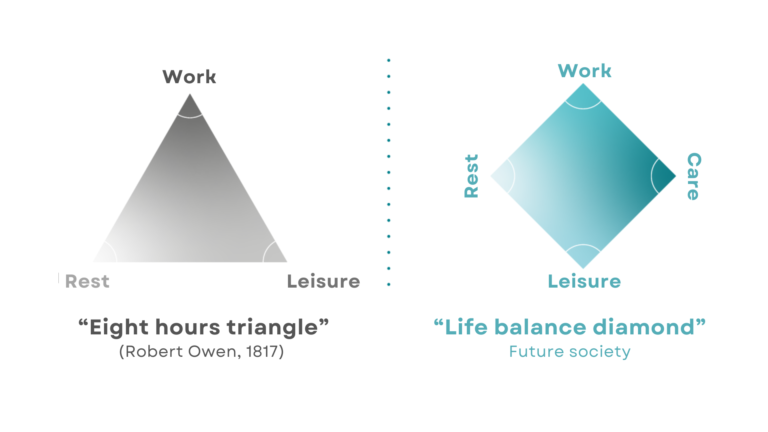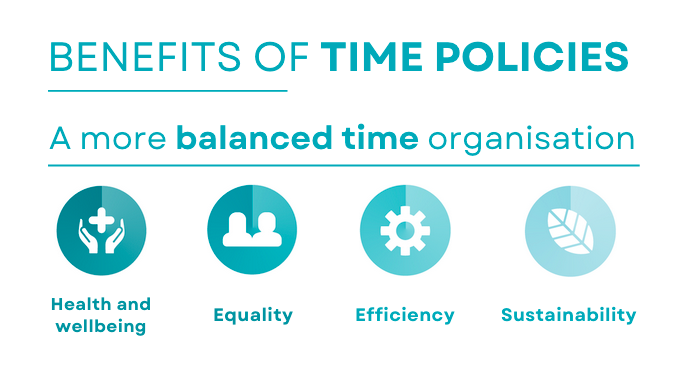Who we are

The Time Use Initiative (TUI) is a globally-focused, independent non-profit organization promoting the right to time worldwide. Its primary objective is to encourage public discussion on how we collectively organize our time, aiming to improve citizens’ well-being through innovative time policies. Built on the principle that transforming our relationship with time is crucial for creating more equitable, sustainable, and fulfilling societies, TUI is committed to driving societal change through five key areas:
Time Equality and Inclusion
TUI addresses time-related inequalities stemming from gender imbalances, socioeconomic disparities, race, and age. The organization focuses on eradicating time poverty, which affects 20-30% of the population, especially women, by promoting policies that ensure equitable access to time for self-care and leisure.
Sustainable Urban Development and Proximities
TUI encourages cities to create resilient urban landscapes that reduce carbon footprints. By promoting proximity neighbourhoods where basic needs are met locally, the organization advocates for planning policies that respect natural resource regeneration and sustainable living.
Chronobiology and Public Health
TUI aims to align social rhythms with biological rhythms to improve public health. By enhancing sleep quality and addressing issues linked to circadian rhythm misalignment—such as cardiovascular diseases and mental health disorders—TUI seeks to reduce the economic costs associated with sleep deprivation, estimated at 1-2% of national GDP.
Efficiency, Productivity and Schedules Rationalization
TUI advocates for the rationalization of work and school schedules to align with people’s circadian rhythms and individual needs, thereby improving efficiency. The initiative supports the adaptation of organizational structures to accommodate new forms of work, including teleworking, irregular hours, night shifts, and digital transformations. By promoting education policies that consider the specific circadian rhythms of children and teenagers, as well as the needs of their caregivers, TUI aims to optimize time use in both professional and educational settings.
Civic Engagement and Democratic Time
TUI facilitates civic participation by ensuring citizens have adequate time for democratic engagement. The organization develops innovative policies to combat time poverty and create spaces for public discussion. By promoting the creation of temporal spaces that allow for dialogue, negotiation, and collective problem-solving, TUI aims to enrich societies by including more diverse voices in public discourse, particularly in an increasingly polarized world.
Our view for 2030
- The UN recognises and protects its citizens’ right to time.
- All continents have at least one city as time-policy leader (World Capital of Time Policies)
- States have Time Use Laws and agreements — holistic regulations of life balance between work, care, rest, and recreation — in all their strategies.
- Local and regional governments lead time policies and Chief Time Officers implementation.
- Availability of time use data is one of the key areas of innovation research.
- Time poverty is reduced and citizens enjoy a healthier, egalitarian and efficient use of time.

More information on TUI's structure and organisation
Time experts
The TUI works with a global set of experts, who aim to advising the organisation in its multiple projects. As time is a cross-sectoral theme, it needs to be dealt with interdisciplinarity. Due to multi-level policies that need to be implemented, such experts also represent a diversity of regional, national, and international backgrounds.
Staff
The TUI has a committed, full-time staff working in its different projects. Due to the net methodology of the Initiative, there are also some people with different backgrounds that work with specific projects according to their fields of expertise.



